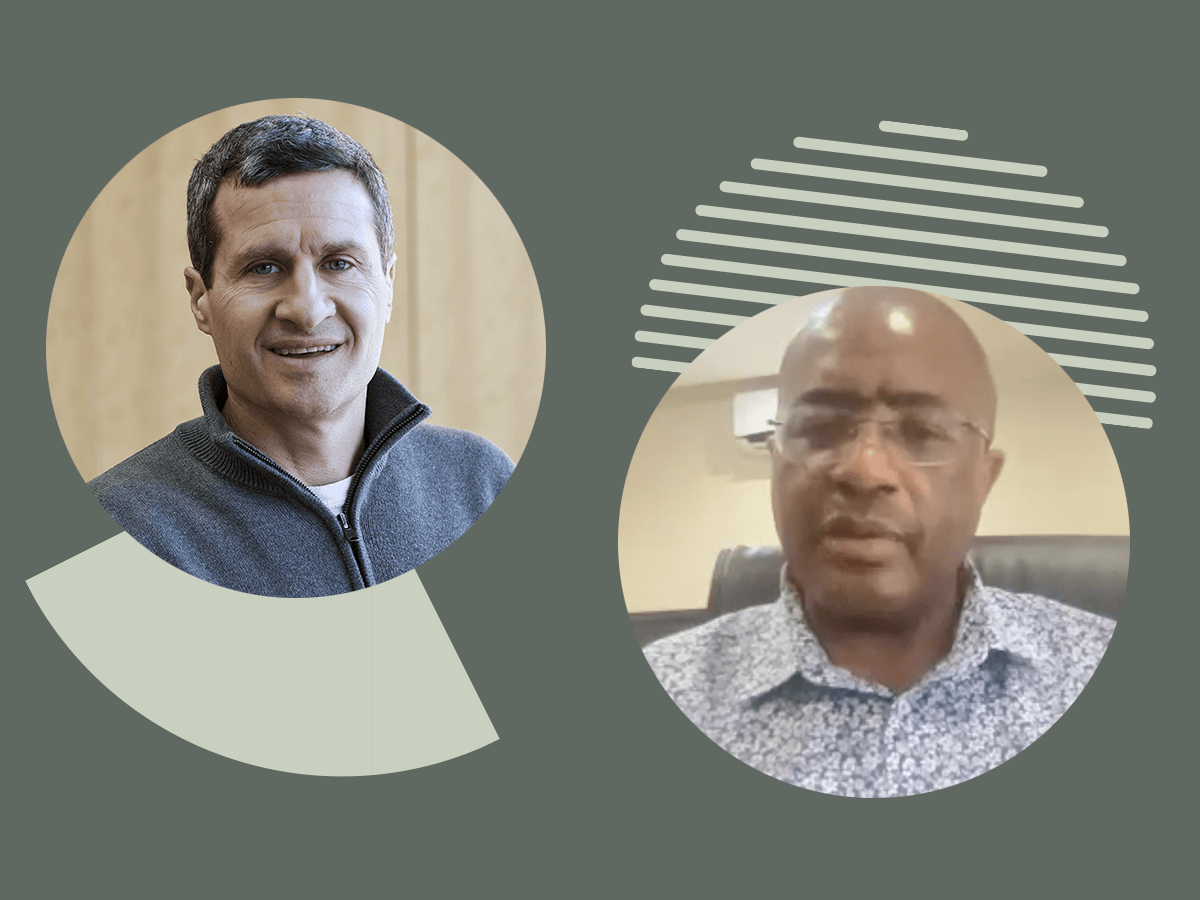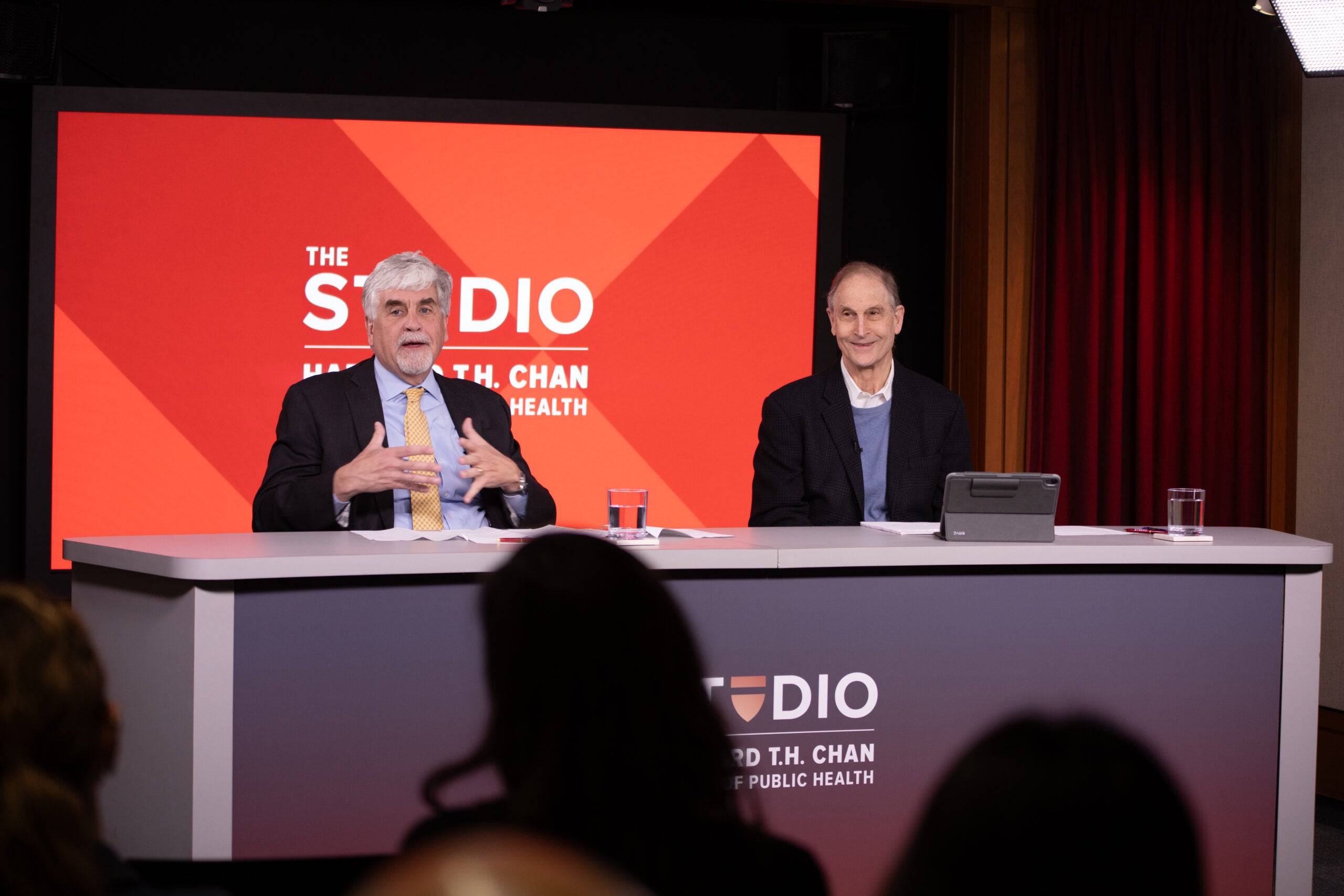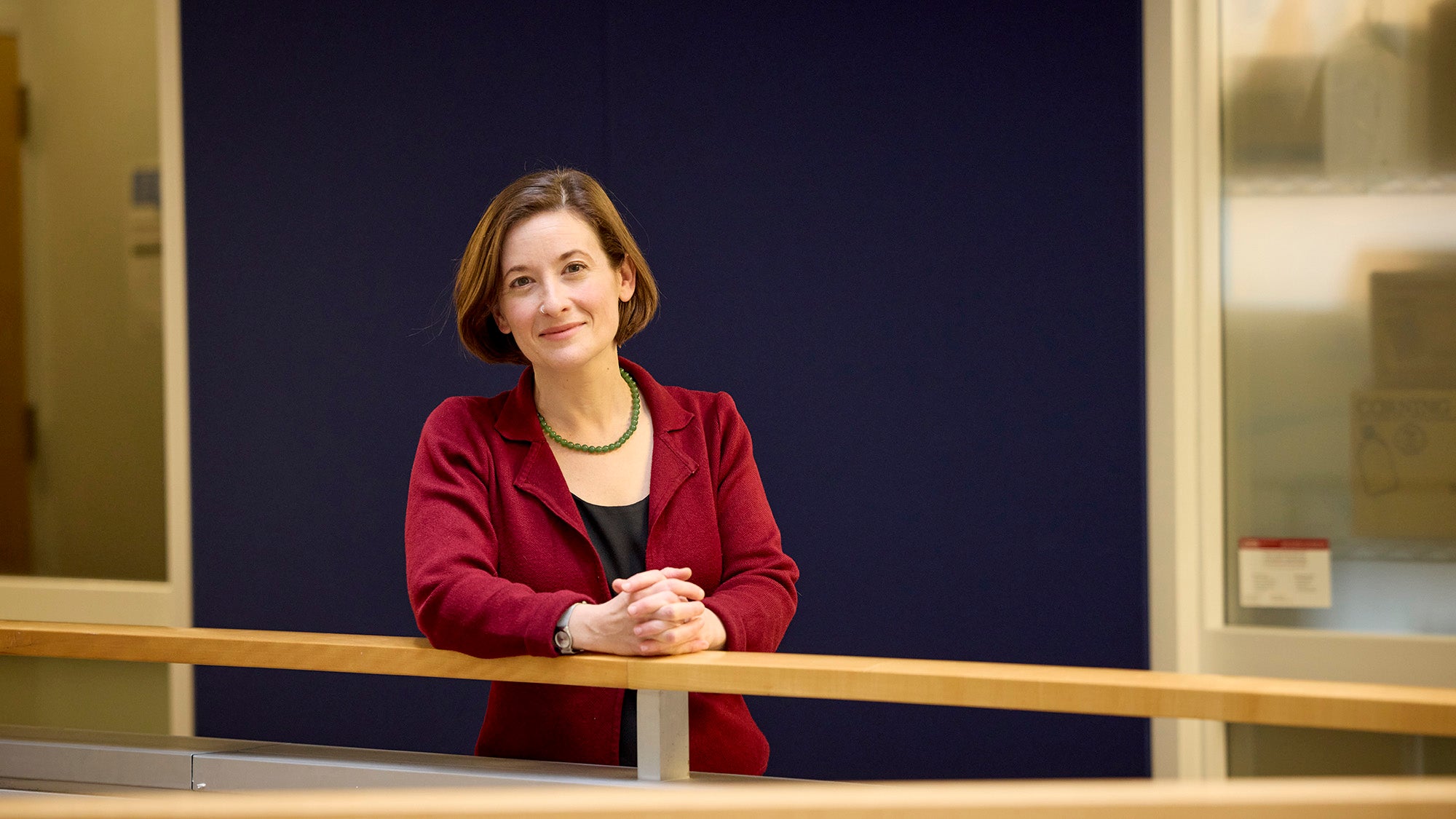Botswana researcher who sequenced Omicron urges more genomic surveillance, vaccinations in Africa

December 8, 2021 – As the world waits to learn more about Omicron, the latest SARS-CoV-2 variant, the Botswana-based researcher who produced the first genetic sequence of the virus spoke about the importance of ramping up sequencing and vaccination in Africa, and of lifting travel bans against African nations.
Sikhulile Moyo, director at the Botswana Harvard AIDS Institute Partnership (BHP) lab in Gaborone and a research associate in immunology and infectious diseases at Harvard T.H. Chan School of Public Health, discussed Omicron and the pandemic in general at a Harvard Chan School press conference on December 3.
In order to adequately track coronavirus variants, Moyo said, “we need to systematically increase our genomic surveillance, especially in low-resource settings, and to support scientists in those regions to continue to do great work and great science.”
He noted that travel bans—which were instituted by the U.S. and several European countries after it was learned that Omicron was spreading in South Africa and elsewhere on the African continent—are not effective in the long-term and usually do more harm than good because they stifle economies and slow the pace of global research. For instance, he noted that such bans could prevent scientists from receiving lab supplies needed for sequencing, such as chemical reagents. “How do we continue with our work when there’s a threat that reagents may run out because there’s not much [air] traffic coming this way?” he asked.
Roger Shapiro, associate professor of immunology and infectious diseases at Harvard Chan School and chairman of the board of directors at BHP, also spoke at the press conference. He agreed with Moyo about the travel bans, calling them counterproductive. “They will not protect us from Omicron, which is now spreading in 38 countries, and they have a large human and scientific cost attached to them,” he said. “There’s a far better path for minimizing the impact of new variants and reducing the chance that they will emerge, which is to roll out vaccines everywhere.”
An unusual sequence
In mid-November, Moyo identified an unusual pattern in the sequencing of COVID-19 samples that looked very different from the Delta variant, which has been dominant in Botswana and throughout the world for months. He shared the information with colleagues in South Africa, who also found a lot of the same sequence in specimens dating back several weeks. “It was Sikhulile’s flagging of this variant, which was first announced by South African colleagues, that led to the world taking notice of its spread,” Shapiro noted in a prior interview.
Moyo’s discovery was no accident, said Shapiro. “Our lab, a collaboration between the Botswana government and Harvard Chan School and, is the premier HIV lab in the country,” he said. “Once the pandemic hit, we quickly pivoted to doing COVID work in addition to our HIV work. We began performing about 30%–40% of the nation’s COVID PCR testing, and doing virtually all of the sequencing, in partnership with the government. At this point the lab has sequenced more than 2,000 virus samples from various geographical locations in Botswana.”
A race to test
Since the discovery of Omicron, scientists around the world have been working quickly to learn more about it. They are testing the variant in labs to see if the current vaccines are able to keep it at bay. They are also studying the variant’s large number of mutations—45 to 52 in all, including between 26 to 32 on the spike protein, which the virus uses to enter human cells. “We’re still trying to understand how so many mutations arose for Omicron in a short space of time,” said Moyo.
Experts are also looking at transmissibility and virulence. “There’s no question that this new variant is transmitting very well,” said Shapiro. “How much better it may be able to transmit than Delta … remains to be seen.” Although some early cases caused by Omicron seem mild, “the key questions about severity and the protection that we get from vaccines are also still to be determined,” he said. “The coming weeks will really help us understand whether we see hospitalizations catch up to transmissions. We hope that will not occur.”
Until more is known about the threat posed by Omicron, vaccination is the best line of defense, Shapiro said. “Most scientists believe that the vaccines, because they stimulate a broad immune response … will protect us, even from the Omicron variant,” he said.
He noted that the researchers from Botswana and South Africa have done the world a huge service by providing the sequencing data so quickly, enabling vaccine manufacturers to begin work toward retooling their vaccines to fight Omicron. “I can only hope that the favor will be returned when the vaccines are created so that southern Africa is offered those same vaccines,” he said.
Noted Moyo, “Look at how many continents, how many countries are reporting Omicron right now,” he said. “This indicates that we are a global economy, a global village, and we should be responding in a similar way—with a global response.”


